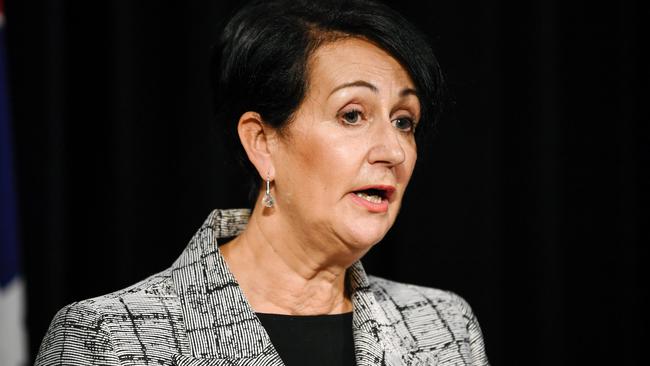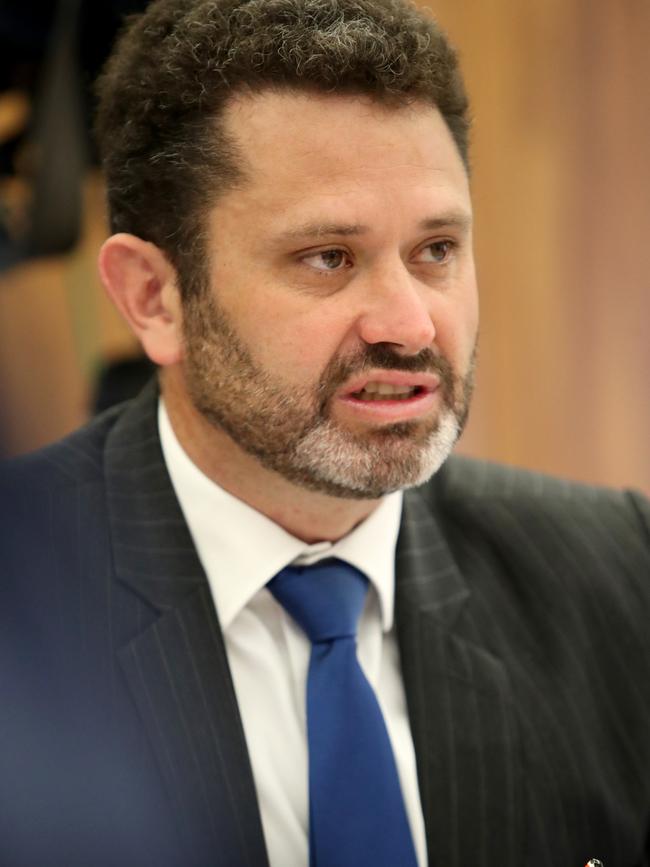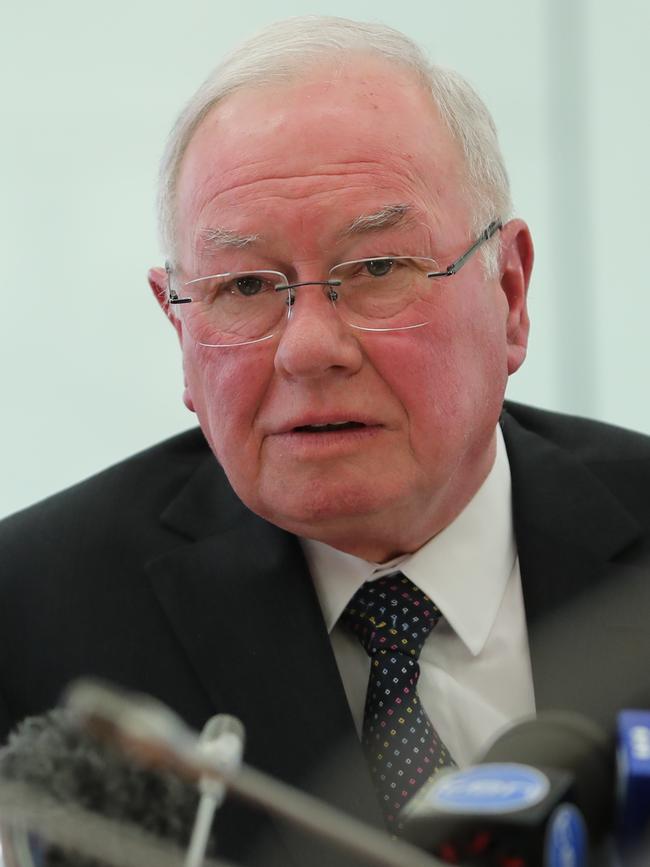Police assessing if Attorney-General Vickie Chapman breached ICAC secrecy provisions
SA police are conducting an assessment into whether Attorney-General Vickie Chapman breached ICAC’s secrecy provisions when she revealed details of an investigation into Renewal SA.
- Labor turns up ICAC heat on Attorney-General Vickie Chapman
- Labor says legal advice shows Chapman broke ICAC secrecy rules
- Your right to know: Both major parties open to end ICAC gag order
- EDITORIAL: Act now to fix oppressive secrecy laws
Anti-Corruption detectives are conducting a probe into whether Attorney-General Vickie Chapman has breached the strict secrecy provisions of the ICAC Act.
The Advertiser can reveal detectives have launched a preliminary assessment of the matter and are currently examining the available evidence.
Once that assessment has been finalised a decision on whether or not a full investigation is warranted will be made by senior officers.
A source said the assessment was expected to be concluded “in coming weeks”.
Investigators were in the process of examining a public statement made by Ms Chapman concerning an ICAC investigation involving Renewal SA executives, a response from Independent Commissioner Against Corruption Bruce Lander QC and legal opinions commissioned by both the Government and Opposition concerning the possible breach of the ICAC Act.

Police Commissioner Grant Stevens on Wednesday night declined to comment on the matter.
Confirmation of the unprecedented police activity will place further pressure on Ms Chapman, who came under intense questioning from the Opposition in state Parliament on Tuesday over the controversy.
Ms Chapman, who was on Wednesday sworn in as Acting Premier, declined to comment on the development, but said she stood by previous statements she had made on the matter.
Opposition legal affairs spokesman Kyam Maher on Wednesday night said “this is now an extraordinary set of circumstances”.
“A probe of this nature clearly compromises the ability of the state’s first law officer to do her job,’’ he said.
In the days after the controversy erupted the Opposition called for Ms Chapman to stand down while police conducted a full investigation into the matter.
The controversy is likely to come under further scrutiny next Tuesday when Mr Lander appears before Parliament’s Crime and Public Integrity Committee.
The police assessment is examining the actions of Ms Chapman on September 27 when she revealed details of an ICAC investigation involving executives from Renewal SA.
Under the strict provisions of the ICAC Act, the fact Mr Lander is conducting an investigation cannot be revealed, unless he issues an exemption authorising such a publication.
The penalty for breaching that provision of the ICAC Act is a $30,000 fine.
The day after Ms Chapman’s statement, Mr Lander recounted details surrounding his dealings with Ms Chapman prior to her statement.


“Yesterday afternoon I received a request to speak to the Attorney-General by telephone,’’ he said in response to media questions.
“My recollection of the subsequent conversation is that any statement made by the Attorney would not include reference to the ICAC and that the Attorney would say publicly that neither she nor the Government could comment.
“I told her that I would not be making a statement. After I became aware of the Attorney’s statement I requested my chief executive to communicate with the Attorney’s office in relation to my recollection of the conversation.
“I was not intending to make a statement but in light of the Attorney’s statement I was of the view that I should state my position and authorise the publication of the Attorney’s public statement.’’
Early last month, the Opposition commissioned retired Federal Court judge Raymond Finkelstein QC to provide a legal opinion on whether or not Ms Chapman had breached the ICAC Act.
His legal opinion found that under the Act, Mr Lander cannot give retrospective exemption from the secrecy laws it contains.
“It is clear that the Commissioner cannot retrospectively authorise a disclosure of information which suggests a person is being investigated,’’ his opinion states.
“The plain language of the provisions indicates that it is limited to the grant of prior authorisation of a disclosure or publication.
“Importantly, it is difficult to see what purpose would be served by construing the power to be retrospective.
“If the disclosure has caused harm, either to an individual or to the conduct of an investigation, that harm would not be undone by a retrospective authorisation.”
Ms Chapman has refused to release Crown law advice she has commissioned, which she said had found she had not breached the Act.
“I have read that advice, I have considered it, I have accepted it and I am satisfied that there has been no breach of the Act or offence against it,” she told Parliament last month.
